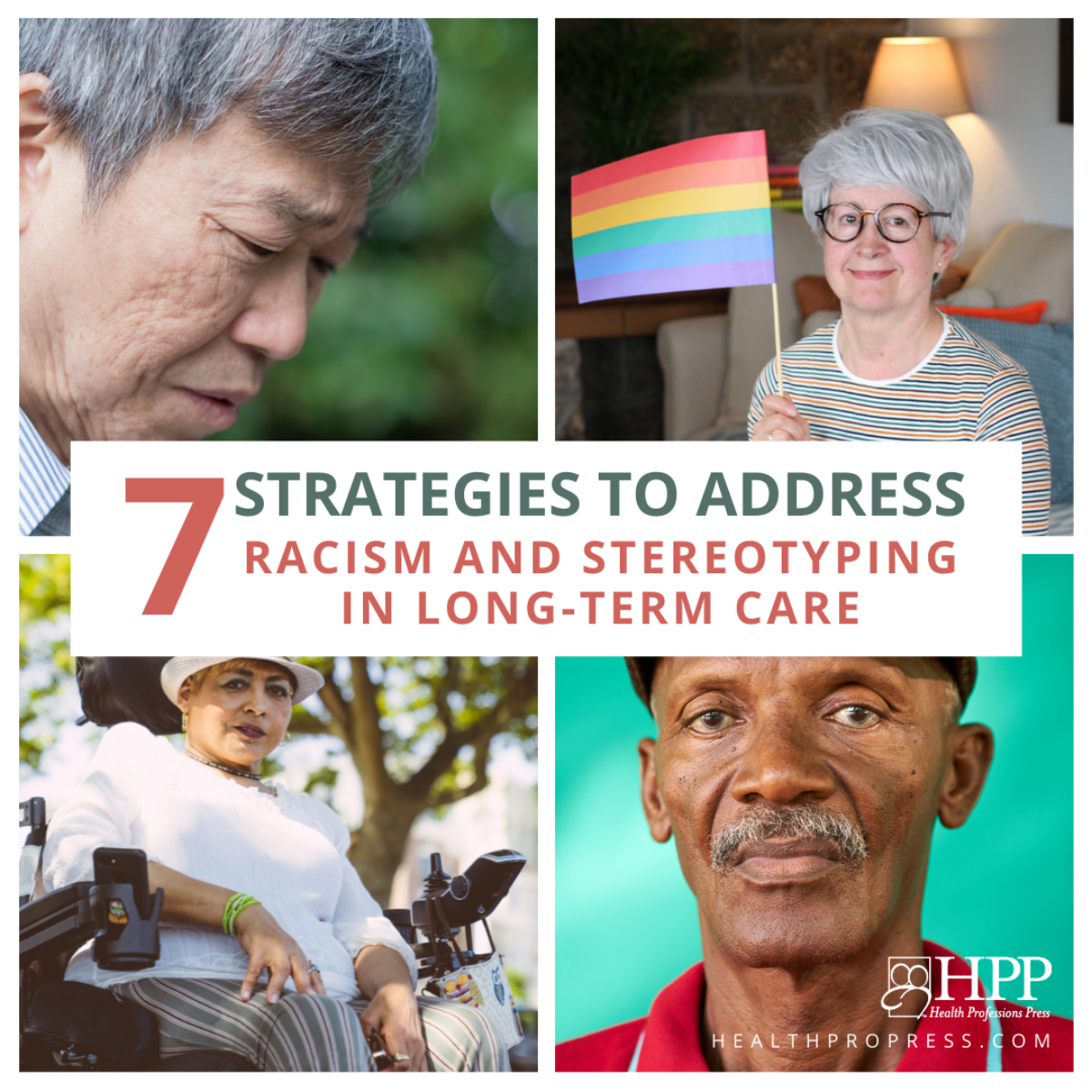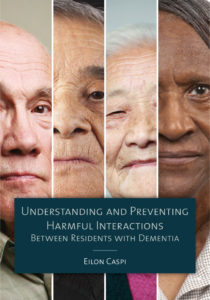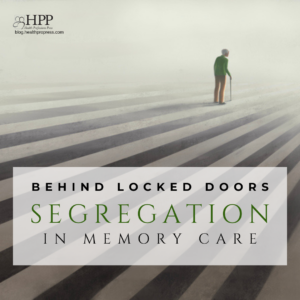
7 Strategies to Address Racism and Stereotyping in Long-Term Care
Many elders grew up in an era and in regions where racist practices were prevalent and accepted as the norm. Some of these people held racist views from their youth and continue to hold these beliefs throughout their lives, whether they openly express these views in public or suppress them as racism becomes increasingly unaccepted and condemned over the years.
When these individuals develop dementia and move into long-term care homes, some may continue to express their long-held racist views toward other residents and direct care partners, especially under distressing day-to-day situations. As Alzheimer’s disease progresses, the cognitive filters that enabled these individuals to keep these views to themselves throughout their lives are no longer working as they did in the past. Disinhibitions and problems with impulse control due to brain disease may exacerbate the frequency and severity of racist expressions.
The majority of nursing home residents in the United States are white, while a substantial portion of direct care partners are from minority groups, and many are immigrants. Racial slurs and ethnic stereotyping are often expressed by a subgroup of white residents with dementia toward care partners and residents from these groups. These expressions can be very emotionally and psychologically hurtful to those on the receiving end. It is not uncommon for these expressions to trigger defensive and protective verbal and physical angry responses by residents feeling hurt by these remarks. It is easy to see how these tense and hurtful interactions can escalate into distressing and harmful resident-to-resident interactions in general and in small, crowded spaces of care homes.
Here are seven strategies direct care partners can take to combat this:
Try to learn about the racial perceptions held by the resident when he or she grew up and throughout his or her life
This can be learned either from the person directly when cognitively able or from close family members or friends. This may give a general sense regarding the extent to which a person has lifelong and deeply ingrained racist beliefs toward other ethnic groups. It will help in developing a realistic sense as to how much the interdisciplinary care team should invest in attempting to change the way the person was conditioned for decades versus directing the care team’s limited time, care resources, and efforts toward modifying the response and approach toward this individual. As importantly, understanding the racial and ethnic perceptions of residents will enable care partners to proactively offer emotional support to residents and other staff members psychologically harmed during these heartbreaking situations.
Evaluate the extent to which disinhibition and problems with impulse control contribute to the person’s expression of these racist remarks
This could help give a realistic sense regarding the extent to which brain disease and cognitive impairments limit the person’s ability to control these expressions which, in turn, could inform the approach used by care partners when interacting with this individual.
Work closely with the care team to send a clear and consistent message to all residents (who are cognitively able to understand it) that racist comments and ethnic stereotyping are not accepted at the care home
Frequent reminders to all care employees, cognitively able residents, and family members will be necessary due to some residents’ short-term memory deficits and persistent lifelong racist views.
Develop a written policy explicitly addressing the expectation of full respect for residents and direct care partners from all racial and ethnic groups
Share the policy with all cognitively able residents and their family members during admission to the care home and provide reminders during the person’s residency. When possible and realistic, work with the resident’s family members on the development of an individualized psychosocial strategy that aims to reduce these racist expressions. Certain residents may be more receptive and willing to listen to a family member or friend with whom they have close trusting relationships. Family members could try to encourage and reinforce the care community’s efforts to instill racially tolerant views in their relatives during their visits. This approach may work well in reducing these racial remarks with certain residents with dementia but not with others.
Managers should ensure that all care employees in direct regular contact with residents know the residents with dementia who tend to express these hurtful remarks
The goal is to increase direct care partners’ sensitivity and vigilance to the possibility that their remarks could hurt other residents, and could contribute to the development of distressing and harmful resident-to-resident interactions. Being aware, direct care partners as well as housekeeping, dietary, and maintenance staff should be in a better position to proactively recognize and promptly prevent these situations from developing or de-escalating them before they cause psychological or physical harm to residents. It is important to pay close attention for any pairs of residents in which one person repeatedly makes racist or racially tinged remarks toward the other. Even residents who may seem somewhat indifferent or tolerant of such nasty remarks for extended periods may eventually reach a breaking point.
Publicly celebrate the life achievements of residents from minority groups experiencing these hurtful remarks from other residents
Their accomplishments (small or large) may be related to their roles in their family, work, volunteering, hobbies, special talents, awards, or honorable army service. This may assist in demonstrating these individuals’ invaluable contributions to their families, communities, and the society. Beyond the potential for strengthening these residents’ self-image, it could also improve their perceived image as it is held by other residents and care partners and thus increase the social acceptance and respect expressed toward them.
Be intentional and persistent in encouraging and nurturing an atmosphere of interracial, interethnic, and intercultural sensitivity, understanding, acceptance, and tolerance
For example, a care home can plan and hold culturally and ethnically diverse enriching events and group activities and develop creative ways to show residents the value and richness of each resident’s race, culture, ethnicity, and religion. In addition, special events can be held on certain days such as on Martin Luther King Day to educate residents about the history and contributions of different groups of people. Make it clear that all minority groups have a human right to be treated with dignity and respect. Over time, a unified and persistent community-wide effort could enable you to see significant reductions in expressions of racist remarks made by residents toward other residents and care employees. This, in turn, will enable your care home to be a place where mutual respect among all people is deeply cherished as a core value. It will also assist you in minimizing the number of distressing and harmful resident-to-resident interactions triggered by these racial remarks and keep residents safe.
Read the book!
 Understanding and Preventing Harmful Interactions Between Residents with Dementia
Understanding and Preventing Harmful Interactions Between Residents with Dementia
By Eilon Caspi, Ph.D.
Copyright © 2022 by Health Professions Press, Inc. All rights reserved.
Emphasizing compassionate, person-directed care practices, author Eilon Caspi describes numerous psychosocial strategies to use to prevent and de-escalate situations prior to, during, and after harmful resident-to-resident interactions. Included are dozens of real-life examples illustrating what does and does not work in managing these episodes.





Add comment